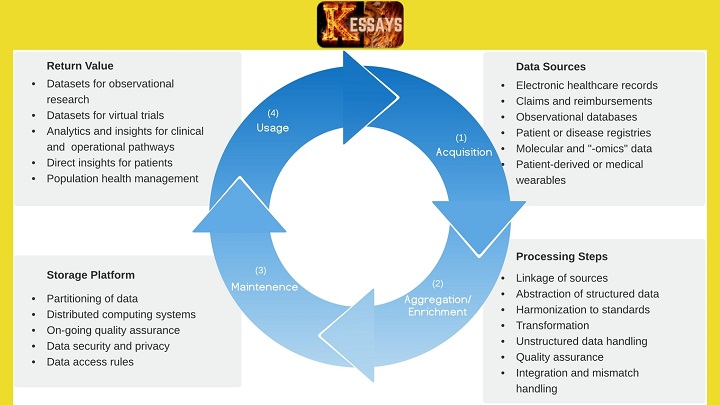Introduction
Public health research plays a vital role in promoting the well-being of populations and improving health outcomes on a global scale. This article delves into the realm of public health research papers, exploring their significance, key findings, and implications for policy and practice. With the keyword "Public Health Research Paper" at the forefront, this comprehensive analysis aims to shed light on the current state of public health research and its impact on public health interventions.
I. Importance of Public Health Research Paper
Public health research papers serve as essential tools for advancing scientific knowledge and informing evidence-based decision-making. By exploring a wide range of topics such as disease prevention, health promotion, and healthcare systems, these papers provide valuable insights into public health challenges and potential solutions. They contribute to the development of policies, interventions, and programs aimed at addressing health disparities and improving population health outcomes. The importance of public health research papers can be elaborated through the following points:

- Advancing Scientific Knowledge: Public health research papers contribute to the expansion of scientific knowledge in various domains of public health. Through rigorous research methodologies, data collection, and analysis, these papers uncover new insights and understanding of public health challenges. They explore the underlying causes, risk factors, and impacts of diseases, as well as the effectiveness of interventions and policies. This knowledge fuels further research and promotes continuous learning and improvement in public health practice.
- Informing Evidence-Based Decision-Making: Public health research papers provide evidence that informs decision-making processes at different levels. Policymakers, public health officials, and practitioners rely on these papers to make informed choices about interventions, policies, and programs. The findings and recommendations presented in research papers guide the development and implementation of evidence-based strategies to address public health challenges effectively. They also contribute to resource allocation, prioritization, and evaluation of public health initiatives.
- Addressing Public Health Challenges: Public health research papers shed light on the multifaceted challenges faced by communities and populations. They examine a wide range of topics, including disease prevention, health promotion, and healthcare systems. By investigating the determinants of health, risk factors, and social disparities, these papers identify key areas for intervention and develop strategies to improve population health outcomes. They also explore innovative approaches and identify gaps in existing knowledge, guiding future research and interventions.
- Developing Policies, Interventions, and Programs: Public health research papers serve as the foundation for developing effective policies, interventions, and programs. The evidence generated from these papers supports the formulation of evidence-based policies that address public health challenges. Interventions and programs designed based on the findings of research papers are more likely to be successful in improving health outcomes and reducing health disparities. Moreover, these papers contribute to monitoring and evaluating the impact of policies and interventions, facilitating evidence-based adjustments and improvements.
- Improving Population Health Outcomes: Ultimately, the goal of public health research papers is to improve population health outcomes. By providing insights into the causes, risk factors, and effective interventions, these papers help reduce the burden of diseases, prevent illnesses, and enhance overall well-being. Through the knowledge gained from research papers, public health professionals can develop targeted interventions, implement preventive measures, and optimize healthcare systems to improve health outcomes at the population level.
In conclusion, public health research papers hold immense importance in advancing scientific knowledge, informing evidence-based decision-making, and addressing public health challenges. They contribute to the development of policies, interventions, and programs aimed at improving population health outcomes and reducing health disparities. By generating valuable insights and evidence, public health research papers play a critical role in shaping public health practice and improving the health and well-being of communities and populations worldwide.
II. Key Findings in Public Health Research Papers
-
Epidemiology and Disease Control
Public health research papers often focus on epidemiological studies, which examine patterns, causes, and effects of diseases in populations. These studies provide crucial information about disease transmission, risk factors, and preventive measures. For example, a public health research paper might investigate the prevalence and risk factors of a particular disease, such as cardiovascular disease or diabetes, in a specific population.
-
Health Promotion and Behavior Change
Public health research papers also explore strategies to promote healthy behaviors and encourage behavior change. These papers may examine the effectiveness of interventions targeting smoking cessation, physical activity, healthy eating, or other lifestyle factors. They shed light on the factors influencing behavior change and provide evidence for developing effective health promotion programs.
-
Health Systems and Policy
Another significant area of public health research is the study of health systems and policies. These papers analyze the organization, financing, and delivery of healthcare services and assess the impact of different policy interventions. They contribute to understanding the effectiveness of healthcare reforms, health insurance coverage, and the accessibility and quality of healthcare services.
-
Environmental Health and Safety
Public health research papers also investigate the impact of environmental factors on population health. They explore issues such as air pollution, water quality, occupational health, and climate change, and their associations with various health outcomes. These papers inform policies and interventions aimed at reducing environmental health risks and protecting public health.
III. Implications for Policy and Practice
Public health research papers have significant implications for policy and practice, influencing decision-makers, healthcare professionals, and public health practitioners. The findings and recommendations presented in these papers can guide the development of evidence-based policies, interventions, and programs to improve population health outcomes. They provide insights into effective strategies for disease prevention, health promotion, and healthcare system improvements.
Moreover, public health research papers contribute to the identification of health disparities and the development of targeted interventions to address them. They play a critical role in advancing health equity by highlighting the social determinants of health and advocating for policies that address underlying systemic issues. Elaborating on this section, we can consider the following points:
- Guiding Evidence-Based Policies: Public health research papers provide a robust evidence base that can guide the development of policies at local, national, and global levels. Policymakers rely on the findings and recommendations of these papers to make informed decisions and develop evidence-based policies. For example, research on the effectiveness of tobacco control measures can inform the development of policies to reduce smoking rates and protect public health.
- Informing Interventions and Programs: Public health research papers play a crucial role in shaping interventions and programs that aim to improve population health outcomes. The insights gained from these papers help healthcare professionals and public health practitioners develop effective strategies for disease prevention, health promotion, and behavior change. For instance, research on the impact of physical activity on reducing the risk of chronic diseases can inform the design of community-based exercise programs.
- Addressing Health Disparities: Public health research papers contribute to the identification and understanding of health disparities, including disparities based on socioeconomic status, race, ethnicity, or geography. These papers highlight the social determinants of health that contribute to these disparities and provide evidence for targeted interventions. By addressing the underlying systemic issues identified in research papers, policymakers and practitioners can work towards reducing health inequalities and promoting health equity.
- Advocacy and Resource Allocation: Public health research papers play a role in advocating for policy changes and resource allocation to address public health challenges. The evidence and findings presented in these papers can be used to advocate for increased funding, policy reforms, and prioritization of public health issues. Policymakers can use the data and recommendations from research papers to make informed decisions about resource allocation to address the most pressing public health concerns.
- Continuous Learning and Improvement: Public health research papers contribute to a culture of continuous learning and improvement in public health practice. They provide opportunities for reflection and analysis, enabling practitioners to critically evaluate their interventions and programs. Research papers also facilitate knowledge sharing among professionals, allowing them to learn from each other's experiences and build upon existing evidence to improve the effectiveness of public health interventions.

In summary, public health research papers have significant implications for policy and practice. They inform evidence-based policies, guide the development of interventions and programs, address health disparities, advocate for change, and contribute to continuous learning and improvement in public health practice. By incorporating the findings and recommendations from these papers, decision-makers, healthcare professionals, and public health practitioners can work towards improving population health outcomes and advancing health equity.
IV. Future Directions in Public Health Research
As the field of public health continues to evolve, future research is expected to focus on emerging health challenges and innovative solutions. Public health research papers may explore topics such as digital health interventions, precision medicine, the impact of social media on health behaviors, and the role of artificial intelligence in public health surveillance.
Furthermore, interdisciplinary collaborations and the integration of new technologies are likely to shape the future of public health research. The use of big data, predictive analytics, and advanced statistical methods can enhance our understanding of complex public health issues and facilitate evidence-based decision-making.
- Exploring Emerging Health Challenges: Future public health research is expected to focus on emerging health challenges that arise due to societal changes, environmental factors, and global trends. This could include research on emerging infectious diseases, antimicrobial resistance, mental health, substance abuse, climate change, and the impact of urbanization on health. By investigating these emerging challenges, researchers can provide insights and evidence to inform timely interventions and responses.
- Harnessing Digital Health Interventions: With the rapid advancement of technology, the integration of digital health interventions is an area of growing interest in public health research. Research papers may explore the effectiveness and feasibility of using mobile applications, wearable devices, telehealth, and remote monitoring to promote health behaviors, improve healthcare access, and enhance disease management. This research can guide the development of evidence-based digital interventions and facilitate their integration into healthcare systems.
- Precision Medicine and Personalized Health: Public health research is increasingly focusing on precision medicine and personalized health approaches. Research papers may investigate the use of genomics, biomarkers, and individual-level data to tailor prevention, diagnosis, and treatment strategies based on an individual's unique genetic profile and other relevant factors. This research has the potential to revolutionize disease prevention and treatment by identifying subpopulations at higher risk, improving targeted interventions, and optimizing healthcare resource allocation.
- Impact of Social Media and Technology on Health Behaviors: The influence of social media and technology on health behaviors is an emerging area of interest in public health research. Research papers may explore the impact of social media platforms, online communities, and digital health communication on health promotion, disease prevention, and health-related decision-making. Understanding the effects of these platforms on health behaviors can inform strategies for leveraging social media for positive health outcomes and mitigating potential risks.
- Role of Artificial Intelligence (AI) in Public Health Surveillance: The integration of artificial intelligence (AI) and machine learning techniques holds great potential for enhancing public health surveillance and response systems. Public health research papers may investigate the use of AI algorithms for early detection of disease outbreaks, predictive modeling, and real-time monitoring of health data. By harnessing AI technologies, researchers can improve the accuracy and efficiency of surveillance systems, enabling timely interventions and proactive public health measures.
- Interdisciplinary Collaborations and Data Integration: The future of public health research lies in fostering interdisciplinary collaborations and integrating diverse datasets. Research papers may emphasize the importance of collaboration between public health professionals, healthcare providers, social scientists, computer scientists, and policymakers. Integrating data from multiple sources, such as electronic health records, environmental data, and social determinants of health, can provide a more comprehensive understanding of health issues and facilitate evidence-based decision-making.
- Advanced Statistical Methods and Big Data Analysis: As public health research embraces larger and more complex datasets, the use of advanced statistical methods and big data analysis becomes essential. Research papers may explore novel statistical techniques, data mining approaches, and machine learning algorithms to extract meaningful insights from large-scale datasets. By leveraging these methods, researchers can uncover hidden patterns, predict health outcomes, and optimize resource allocation for public health interventions.
In conclusion, the future of public health research holds exciting possibilities. By focusing on emerging health challenges, harnessing digital health interventions, embracing precision medicine and personalized health, exploring the impact of social media and technology, leveraging AI in public health surveillance, promoting interdisciplinary collaborations, and utilizing advanced statistical methods, researchers can address complex health issues and drive evidence-based decision-making in the field of public health.

Conclusion
In conclusion, public health research papers are invaluable assets in addressing public health challenges and improving population health outcomes. By examining key findings and implications of such papers, policymakers, healthcare professionals, and public health practitioners can make informed decisions to promote health, prevent disease, and reduce health disparities. As public health continues to evolve, research in this field will play a pivotal role in shaping interventions, policies, and programs to safeguard and enhance the well-being of communities worldwide.

 In summary, public health research papers have significant implications for policy and practice. They inform evidence-based policies, guide the development of interventions and programs, address health disparities, advocate for change, and contribute to continuous learning and improvement in public health practice. By incorporating the findings and recommendations from these papers, decision-makers, healthcare professionals, and public health practitioners can work towards improving population health outcomes and advancing health equity.
In summary, public health research papers have significant implications for policy and practice. They inform evidence-based policies, guide the development of interventions and programs, address health disparities, advocate for change, and contribute to continuous learning and improvement in public health practice. By incorporating the findings and recommendations from these papers, decision-makers, healthcare professionals, and public health practitioners can work towards improving population health outcomes and advancing health equity.

Comments are closed!